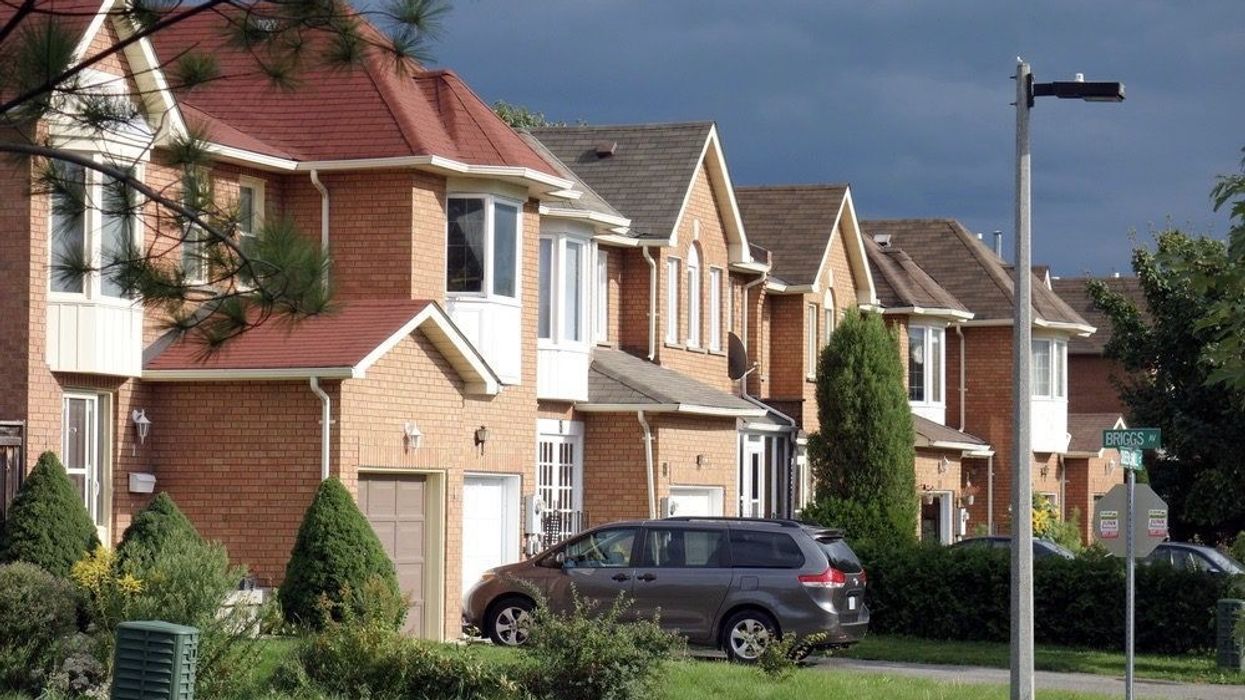With the Bank of Canada (BoC) poised to implement further hikes to its overnight lending rate later this year, a new report is warning of a potential housing-related "major recession" that could happen if the bank is too aggressive.
The report from Capital Economics' Senior Economist Stephen Brown says that recent communications from the BoC "suggest that it will be unfazed by the second consecutive double-digit drop in home sales in May." This, he says, raises the chance of the bank once again hiking its interest rate next month, spurring concerns that home prices will be driven down sharply, leading to a major recession.
In the month of May, Canada saw home sales drop 12% from the previous month. This followed the 14% decline that was seen in April. The balance between supply and demand is now becoming worrying, Brown writes, noting that the "sales-to-new-listing ratio for Canada's four largest cities now implies that house price inflation will drop to zero by the end of 2022." For context, home price inflation was at 18% in April. In Toronto specifically, where home prices have soared unattainably high during the pandemic, Brown says that all signs are pointing to a negative house price inflation.
Home prices are already slipping in some of Canada's major markets, with the latest nation-wide numbers revealing a 0.6% drop in home prices from April to May. In Toronto, prices have dropped more than 3% for two months in a row. But Brown notes that this does not appear to be concerning the BoC, with it having released a statement last week simply saying that "housing market activity is moderating from exceptionally high levels.”
However, there is a chance the BoC may temper their increases, with BoC Deputy Governor Tony Gravelle recently telling economists in Quebec that “[a factor that] might lead us to pause [rate hikes] is that many households have taken on more debt to get into the housing market.”
With residential real estate investment being the most elevated component of Canada's GDP compared to pre-pandemic levels, Brown says that a housing slowdown could potentially be what Canada needs to get Consumer Price Index inflation back towards 2%.
"The danger, however, is that the Bank will misjudge the impact of its aggressive policy tightening," Brown wrote. "While home sales react relatively quickly to higher interest rates, it will take several quarters for the full effects on house prices and broader activity to be felt. For example, in the U.S. before the global financial crisis, sales began to weaken in 2005 and housing starts followed suit in 2006, but it was not until 2007 when that weakness spilled over to the rest of the economy and house prices started to fall even more sharply."
Although how much the bank will raise its interest rates remains to be seen, Brown notes that Deputy Governor Paul Beaudry suggested that it intends to either raise its policy rate to the top end of the neutral range estimate -- between 2% and 3% -- or will go beyond that range.
"If the Bank raised its policy rate to 3.5%, which is only slightly above the current market implied terminal rate of 3.25%, then the housing market would face the most dramatic hit to affordability since the early 1980s Volcker Shock," Brown wrote. "By our estimates, a policy rate of 3.5% would result in an average five-year fixed mortgage rate of 4.5% and an average variable rate of 4.9%, up by 240 bp and 350 bp from their respective lows in September 2021."
Despite the fact Canada has seen noticeable wage growth recently and is expected to continue with that trend, Brown says that rising mortgage rates will ultimately cut the maximum house price that a buyer could afford by 23% compared to 2021.
"Based on a policy rate of 3.5% and a five-year fixed mortgage rate of 4.5%, a median income earning household committing one third of its pre-tax income to mortgage payments would have a budget of $525,000," the report reads.
If the bank does decide to hike their rates up to 3% and beyond, Brown says that Capital Economics will have to revise its currently estimated 10% housing market correction to a steeper number and prepare for the "real risk of recession."





















